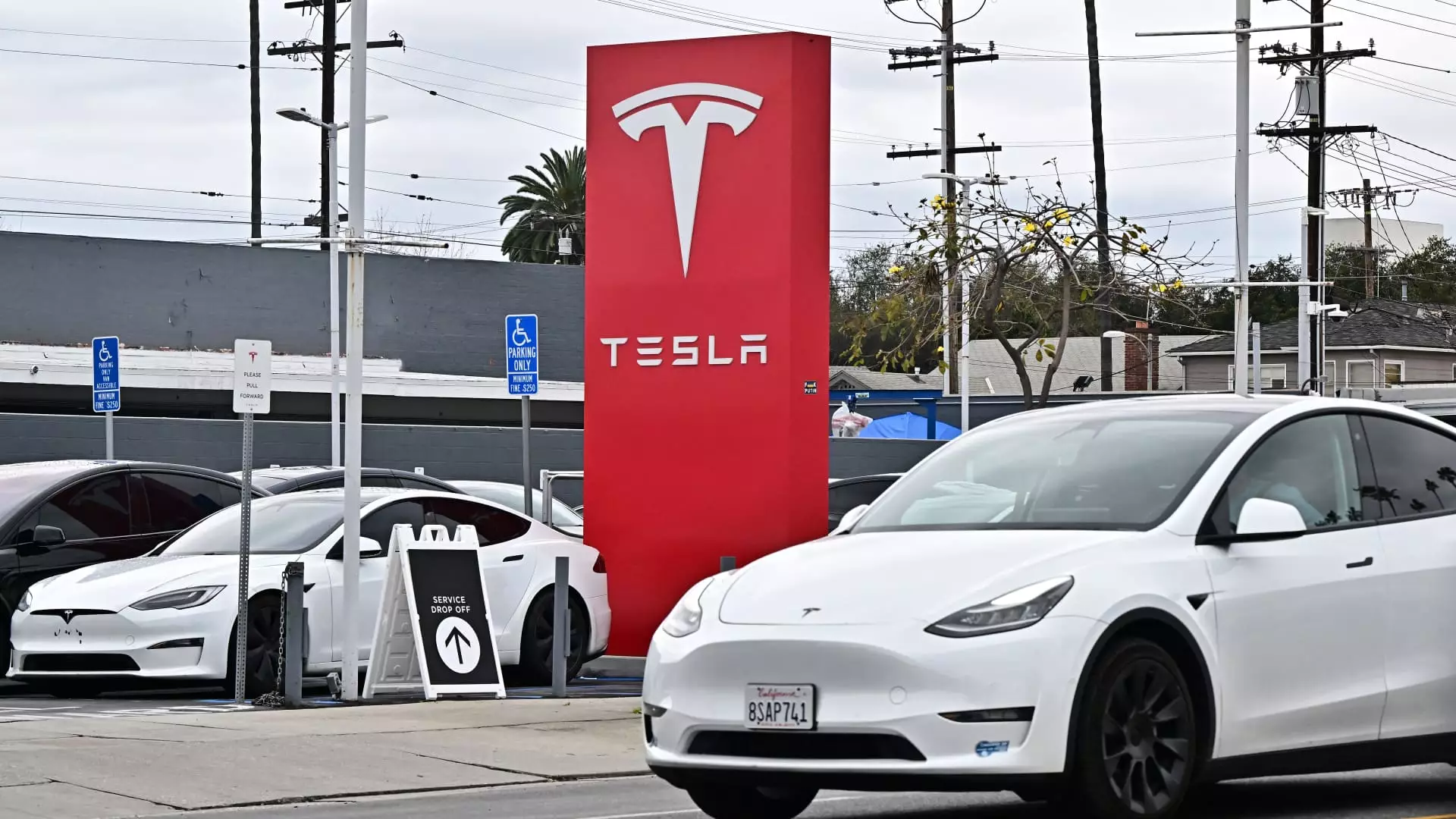In a surprising twist, the landscape of electric vehicle (EV) ownership is experiencing turbulence under Elon Musk’s leadership as head of the Department of Government Efficiency (DOGE). According to recent analytics from Edmunds, March 2023 marked an unprecedented peak in Tesla trade-ins, indicating that a significant portion of Tesla owners is actively seeking alternatives to their once-coveted electric vehicles. This scenario unfolds against the backdrop of Musk’s politically charged tenure in Washington D.C., where he’s not only slashed government spending but is also facing legal challenges concerning his ambitious political maneuvers.
One must question whether Musk’s controversial leadership style is alienating the very consumer base that once championed the Tesla brand. He has aligned himself closely with a polarizing political climate, which has undoubtedly influenced how consumers engage with the Tesla brand. The impulse to distance themselves from an image currently sullied by political shenanigans, court battles, and shrinking stock value seems to resonate with many Tesla owners who are now looking for refuge from the chaos.
Consumer Sentiment: A Harbinger of Change
Jessica Caldwell, head of insights at Edmunds, noted a vital shift in consumer sentiment: “As Tesla brand loyalty and interest wavers, those offering competitive pricing, new technology, or simply less controversy could capture defecting Tesla owners and first-time EV buyers.” This statement encapsulates a crucial warning for Musk and his strategy—brand loyalty built on the charisma of a controversial leader can only hold for so long.
In the traditional automotive market, brand loyalty is often intrinsically linked to the quality and reliability of the vehicles offered. Yet, for Tesla, the intricate relationship between the brand and Musk himself is troubling. With only 2% of car shoppers reportedly unaware of Musk, it’s evident that his influence deeply permeates consumer perception. Unfortunately, his leadership approach and public image appear to be backfiring, leading to declining interest and trust in the brand.
As the automotive market evolves, the need for innovative technology and reliable production becomes paramount. Legacy automakers, such as Ford and Chevrolet, are not sitting idle. Their intensified commitment to EVs may capitalize on the slip in Tesla’s consumer base by offering vehicles that promise less controversy alongside comparable—or superior—features.
The Significance of Market Dynamics
The Tesla brand’s struggles also come hand in hand with a notable dip in its market value; according to Brand Finance, the company’s brand value fell by a disheartening 26% in 2024. This marks the second consecutive year of decline—for a company once at the vanguard of the EV revolution, the deterioration is glaring. The market dynamics have shifted dramatically in favor of competitors, some of which have capitalized on missteps made by Elon Musk and Tesla.
The figures don’t lie; a staggering 11% decline in U.S. sales year-over-year points to an evident fracture in consumer trust. In the face of rising competition from both established car manufacturers and EV startups, this loss signals an opportunity for rivals to charm Tesla defectors and tap into new markets.
At a time when so many legacy brands are investing heavily in the EV sector, the fallout from Musk’s governance could further tighten the noose around Tesla’s place in the market. Consumers are increasingly faced with a multitude of options, making it crucial for Tesla to rethink its brand strategy and approach to customer relations to salvage its status as a leading EV manufacturer.
The Road Ahead for Tesla
Despite the current chaos, one cannot dismiss the potential for recovery. The technical prowess and environmental vision that once fueled Tesla’s popularity remain intact, albeit overshadowed by controversy. In this ever-evolving realm of electric vehicles, Tesla’s chief dilemma revolves around restoring trust. The company’s ability to cater to a changing consumer landscape, offering not just vehicles but a less contentious corporate philosophy, will be pivotal to maintaining its foothold in the fiercely competitive EV market.
As we forge ahead into this new era of mobility, it’s crucial for all stakeholders—be it the manufacturers, consumers, or policymakers—to tread carefully. The unprecedented trade-in rates should serve as a wake-up call for Tesla to reassess its branding strategies, move past its current leadership struggles, and re-engage with its base. The brand that once symbolized innovation and hope must adapt or risk fading into the background of a rapidly changing automotive future.

